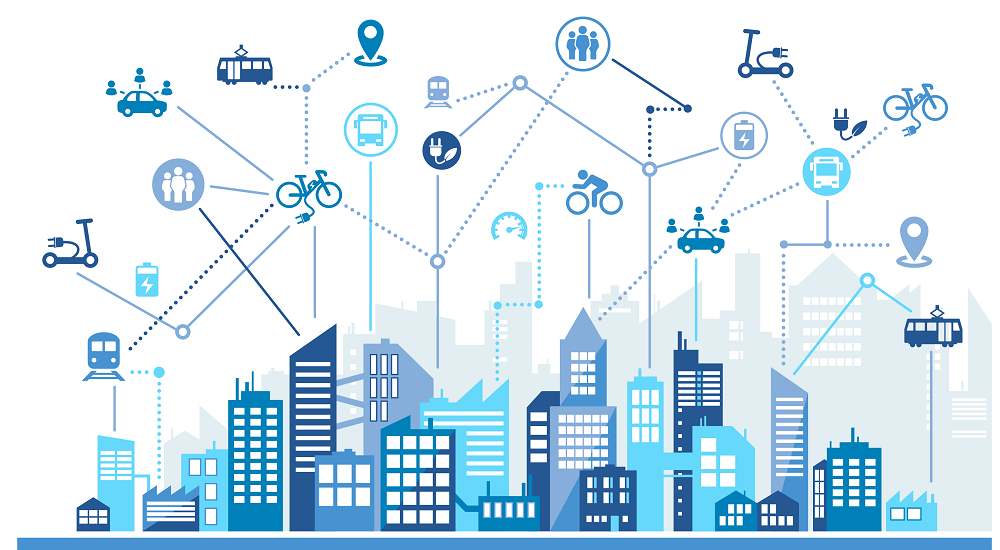- July 30, 2021

Integrated mobility; it’s a hot topic in the transport world at the moment – but what does it really mean?
Integrated transport, also known as multimodal or intermodal mobility, is where transport services and public authorities work together to encourage users to take trips involving multiple modes of transport.
An example of this would be using a ride-sharing service to your local station, taking the train into the city, and then finishing your journey by hiring a bike or e-scooter to get to your office – all under a single payment solution.
Integrated mobility would undoubtedly transform the way we use and think about transport. By removing the fragmented, multi-layered processes – which result in so many choosing to use their car rather than opt for other transport solutions – integrated mobility is at the very forefront of transport innovation, opening the possibility of creating a seamless, cost effective, lower carbon emission service which amalgamates multiple modes of transport under one ecosystem.
This initiative would give transport providers an opportunity to fill gaps in mobility where other, more traditional, service providers cannot, and reduce inefficiencies around the first-and-last mile problem. ‘Hidden wastage’ such as delays, infrastructure limitations, and the underutilisation of idle buses/trams/bike stations due to poor planning could be resolved by the pooling of resources, time, data, workforces, technology and skills.
So why hasn’t this happened already? What should existing transport providers be doing to work towards this initiative?
In January 2019, the UK Government released a report on ‘The Future of the Mobility System’, identifying and encouraging a move towards integrated mobility or Mobility-as-a-Service (MaaS). Other countries, such as Finland, Singapore, and Switzerland are ahead of the curve having already adopted MaaS within their transport strategy, enabling users to pay for various journeys individually or buy a monthly subscription through an app called ‘Whim’. The app, run by Finnish start-up, MaaS Global, is currently trialling in the West Midlands and it seems to be only a matter of time before integrated mobility revolutionises transportation in the U.K.
Having a robust management operating system in place would help current transportation service providers effectively plan and position themselves for these changes.
Firstly, ensuring reliable tools are in place to forecast demand and capacity would help realise existing hidden potential and identify current limitations. Establishing dynamic route plans, smarter resource allocation, and useful scheduling tools would help optimise current performance, paving the way for new partnership possibilities. Additionally, implementing a practical means to control these processes would guarantee businesses can continue to meet service requirements and withstand a greater demand in future. Finally, effective real-time performance reporting and reviewing would provide invaluable insight into customer behaviour and indicate growth opportunities.
